
Speaking Notes:
Yes, all of this information is freely available for you to distribute as best you can.
Doug
As you will see from the attached, the federal government has advancedplans in place to strip navigation rights from thousands of riversacross Canada, and they plan to do this quickly without publicconsultation under the pretext of saving the economy. Please review this material and help any way you can:
1) Distribute this informaiton through your networks.
2) Act and encourage others to act by initiating efforts to informpoliticians at every level that navigation rights and environmental lawsin Canada should not be tinkered with under the guise of helping theeconomy.
3) If you are a member of an organization that wants to be publiclylisted as a supporter of the Canadian Rivers Network, let us know bysending us an email with the name of your organization, and contactinformation for a designated representative.
4) Speak the media about the NWPA issue at whatever level you can,local, regional, proviincial or national.
5) Let us know if you have the name of anyone who is qualified andwilling to speak to the national media on behalf of the Canadian RiversNetwork.
Please let us know if you require any additional information orassistance.
January 19, 2009
The following are a series of speaking notes prepared by the Canadian Rivers Network, that you can use when speaking to people, groups, your municipal, provincial, territorial or federal government representatives, or to the media on the topic of navigation rights in Canada and the move by the Harper government to strip navigation rights from thousands of waterways across Canada by gutting the navigable Waters Protection Act.
WHAT THE CONSERVATIVES WANT TO DO:
The Harper government is poised to erase the historic right of navigation in Canada, a common law right that pre-dates confederation.
In public announcements published in the major media January 12 and 13, 2009, the Harper government stated its intent to gut the Navigable Waters Protection Act as part of its plan to inject billions of dollars into infrastructure programs across the country.
The Harper government says the NWPA is antiquated and they want it out of the way.
HOW THEY PLAN TO GUT THE NWPA:
The Harper government launched a strategy in July of 2006, less than six months after taking office, to strip navigation rights from thousands of waterways across Canada, and eliminate the need for developers to consider impacts on the public right of navigation when building in or near water.
They plan to do this by amending the Navigable Waters Protection Act so that it does not apply on thousands of Canadian waterways.
The Harper government intends to:
- strip the four named works in the NWPA (bridges, dams, booms and causeways) and remove those types of works from automatic assessment for impacts on navigation
- exempt minor works from the provisions of the NWPA
- exempt minor waters from the NWPA
WHY ARE NAVIGATION RIGHTS IMPORTANT:
The public right of navigation in Canada pre-dates confederation. In fact public navigation rights date back to Roman law and are entrenched in some form in the laws of virtually all modern nations.
In 1882, while Sir John A. MacDonald was Prime Minister of Canada, the Canadian parliament enacted one of the first truly national pieces of legislation and entrenched the common law right of public navigation through the Navigable Waters Protection Act (NWPA).
The intent of the NWPA at that time was to ensure that the extensive development taking place on waterways did not unnecessarily or extensively interfere with the long-established public right of navigation.
Protecting the public right of navigation was important in 1882 and it is important today, perhaps even more so.
The NWPA is an old piece of legislation but it is far from irrelevant. In 1990 the Supreme Court of Canada reaffirmed the value and critical importance of protection the public right of navigation in Canada in its Oldman River decision.
Canadian waterways have never in our history been under the level of development pressure that they are today. Developments in and around our waterways are being proposed and occurring at an ever-increasing rate.
If you strip the need to consider the public right of navigation when developing structures on waterways, you eliminate one of the pillars of protection on our natural environment, you put Canadian rivers at risk.
Canada was discovered, explored and developed through the navigation of our waterways. Navigation is an important part of our heritage and an integral part of the heritage of Aboriginal Canadians.
WHAT HARPER IS DOING:
The Harper government is using an international economic crisis as an opportunity to strip Canada’s environmental laws. The government is acting radically. The government is breaching the public trust. Harper does not have a mandate from the Canadian people to gut our environmental laws.
This eagerness to turn a blind eye to the environmental impacts of runaway development will have negative impacts on Canada, our environment, and our international reputation for generations.
WHAT JOHN BAIRD IS SAYING:
Here’s what Transport Minister John Baird said about the NWPA, the law in place to protect the right of Canadians to travel our waterways (National Post, January 12, 2009):
"We have a lot of rules in place to stop bad things from happening…”
Mr. Baird called the NWPA “a huge regulatory burden that can really slow things down."
The government is also talking about “…overhauling the environmental assessment process, which addresses the effect of a project on the surrounding area.”
So the Harper government’s strategy in responding to Canada’s current economic challenge is to:
Save the economy by gutting the environment.
WHAT THE HARPER GOVERNMENT ISN’T TELLING YOU:
Their plan to erase navigation rights in Canada has nothing to do with the current economic situation. The plan to gut the NWPA is part of an overall strategy to remove environmental safeguards in Canadian law.
The current move to gut the NWPA dates is part of a multi-year strategy crafted within the Navigable Waters Protection Program of the Ministry of Transport dating back to July of 2006, less than six months after the Harper government first took office.
This strategy hit the public last May when it became known that the Parliamentary committee for transportation, infrastructure and communities was holding hearings on proposed changes to the NWPA, without consulting anyone with any interest in preserving the public right of navigation in Canada.
That parliamentary committee then rushed a report through in June recommending the changes to the NWPA, the effect of which is to remove navigation rights from thousands of waterways across the country.
WHAT THE HARPER GOVERNMENT WANTS TO DO:
The historic test for navigable in Canada is, if you can paddle a canoe in it, it’s a navigable waterway. There is probably not a more appropriate test in Canadian legal tradition than this “float a canoe” test in the NWPA. It is distinctly Canadian. It’s part of our heritage.
The Harper government wants to eliminate that legal test and exempt thousands of waterways from the NWPA by calling them “minor waters”. Here’s a definition for “minor waters” proposed by Transport Canada in 2007:
Minor Waterways Criteria – Proposed National Criteria
- less than 60 cm depth at high water mark
- less than 3 m wide at high water mark
- channel slope greater than 2 percent
- sinuosity* (bends in the river) greater than 2
- natural obstacle frequency* greater than 3
Sinuosity Ratio = ratio of the length of the centreline of the stream to
length of a straight line connecting the same points along the channel
Natural Obstacle Frequency = number of natural obstructions (see
definitions) along a stream length of 500m (250m upstream, 250m downstream)
The government is also considering eliminating “recreational” navigation from the NWPA and exempting “minor works” from consideration under the NWPA, without saying what minor works are.
These NWPA amendments will effectively eliminate the public right of navigation in Canada.
The Harper government is acting radically. They do no have a mandate to eliminate the fundamental right of all Canadians to access and enjoy our waterways. They do not have a mandate to gut Canada’s environmental laws.
In fact, there is a principle of public trust that our government will protect our rights, not remove them arbitrarily.
This is an issue that affects anyone who access Canadian waterways for any reason. This is an issue that affects all Canadians.
Ottawa seeking to speed up process for works projects
BRIAN LAGHI AND STEVEN CHASE
From Tuesday's Globe and Mail
January 13, 2009 at 4:24 AM EST
OTTAWA — Ottawa is moving to speed up the process for building roads, bridges and other job-rich public-works projects - pledging to slim down excessive environmental requirements and asking provinces to supplement construction that would help native Canadians.
Both issues are expected to be discussed this week when Prime Minister Stephen Harper meets with premiers as well as territorial and native leaders. The measures are being planned for the crucial budget of Jan. 27, when Ottawa will fight economic downturn by running a deep deficit and doling out up to $30-billion in stimulus spending.
The federal government has been consulting widely with the provinces over the past few weeks to find what the bureaucracy has called "shovel-ready" projects that can be started quickly in an effort to soften the downturn's impact.
Two provincial sources have told The Globe and Mail that the provinces want to see Ottawa cut some of the procedures when it comes to environmental assessments that must be done before projects are begun. Often, federal and provincial governments each conduct their own environmental studies before a project can be started. But the desperate need to get the work going has compelled discussion on ways to reduce environmental preparation.
Infrastructure Minister John Baird acknowledged in an interview yesterday that he is looking at removing redundant regulation.
"There's a real hodge-podge of environmental assessment requirements - of overlap and duplication," he told The Globe and Mail. "Many of them are just duplicating what's done at the provincial level."
Federal sources added that they have asked the provinces to supplement work on native reserves with provincial projects. Ottawa has a long list of schools, treatment plants, multipurpose facilities and other projects that could be built on reserves across the country, reducing the huge unemployment rate in those areas.
However, because reserves are on federal land, provinces are reluctant to take part. Nonetheless, Ottawa is asking them to spend money in related areas. For example, if the federal government were to construct a water treatment plant on a reserve, it might ask the provincial government to pay for water lines that are connected to a neighbouring town.
"I think [Finance Minister Jim] Flaherty's worst fear is that we will put a whole bunch of money on the table on Jan. 27 and the provinces can ease off," a federal source said. "There's a real premium on partnership here."
Although premiers such as Ontario's Dalton McGuinty are said to be against the idea, others, including British Columbia's Gordon Campbell and Saskatchewan's Brad Wall, like the notion. Ottawa hopes the latter make their voices heard at this week's meeting.
Mr. Baird said streamlining environmental assessments is one of several changes Ottawa is mulling, adding that rewriting laws is another.
He said, for example, that the Navigable Waters Protection Act as currently written is an example of outdated legislation that can hamper public works.
"We got an earful wherever we went from British Columbia to Nova Scotia on that," he said.
http://www.nationalpost.com/news/canada/story.html?id=1167127
Old Law A Hurdle To New Roads
'Mish-Mash'; Tories eye change to environmental legislation
James Cowan, National Post, With Files From CanWest News Service
Published: Monday, January 12, 2009
A century-old piece of legislation that frequently stalls construction projects will be among the laws the Conservative government will target for revision as it attempts to infuse billions of dollars into Canada's lagging economy.
Faced with a recession, Jim Flaherty, the Finance Minister, likely will announce stimulus measures in the budget on Jan. 27. At the same time, the Conservatives will pursue changes to environmental assessment laws and other regulations that delay infrastructure projects once they receive funding.
"There's a lot we can do -- whether it's statutory, regulatory, processes -- that can speed up getting shovels in the ground," said John Baird, the Minister of Transport, Infrastructure and Communities, in an interview yesterday.
"We have a lot of rules in place to stop bad things from happening, but little in place to facilitate good things."
The federal government is already committed in 2007 to spending $33-billion over seven years on roads, public transit and other infrastructure projects.
Among the laws earmarked for revision is the Navigable Waters Protection Act, which was enacted in 1882 to regulate the construction of dams and bridges and guard marine routes from intrusions by the logging industry.
The law has been revised over the years, but Mr. Baird said its antiquated guidelines fail to distinguish between "the tiniest creek and the bridge between New Brunswick and Prince Edward Island."
"It's a piece of legislation brought in the 1800s with, frankly, little benefit but huge regulatory burden that can really slow things down," he said.
Rodney MacDonald, the Premier of Nova Scotia, and other provincial leaders have raised the need to reassess the act. However, potential caused concern for environmentalists and boaters.
Discussions are also under way about overhauling the environmental assessment process, which addresses the effect of a project on the surrounding area.
Different assessment standards apply to different projects receiving federal funding, Mr. Baird said.
"It's a real mish-mash, hodgepodge."
Mr. Baird intends to meet on Thursday with the mayors of some of Canada's largest cities to ask them to support measures aimed at reducing bureaucratic delays to infrastructure projects.
Michael Ignatieff, the Liberal leader, has called for increased infrastructure spending in the upcoming budget along with support for individuals affected by the economic downturn.
Stephen Harper, the Prime Minister, told reporters last week that the budget will contain a "big, comprehensive" plan to bolster the economy.
"We are in an unprecedented period," he said on Friday. "We are ready to listen to all the suggestions and we are looking at hundreds of possibilities."
Statistics Canada reported on Friday that 34,000 full-time jobs were lost last month, while the United States shed 524,000 jobs.
"Obviously the figures today are troubling," Mr. Harper said.
"Every time a Canadian loses his job this is something that really does preoccupy us. What I think is more troubling are the figures in the United States, which really do indicate the period of difficulty we are entering in terms of the global economy."
Mr. Flaherty has said the Jan. 27 budget will contain a "substantial deficit."
It is expected the Conservatives will commit at least $30-million toward retraining workers who have lost their jobs, boosting consumer spending and other initiatives.


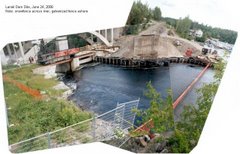


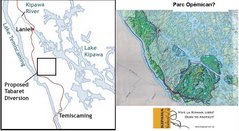

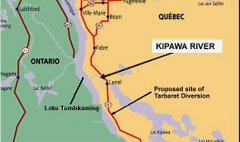

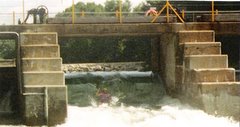










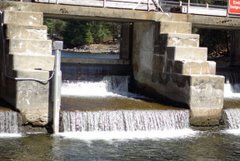






No comments:
Post a Comment